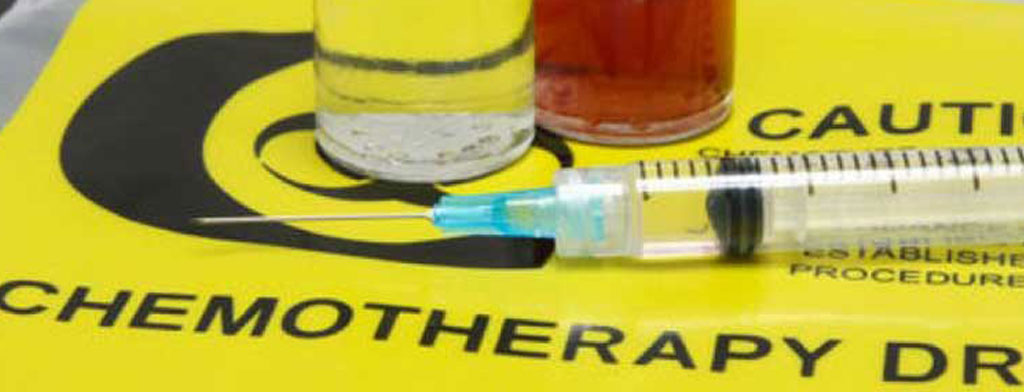A C

Global Veterinary
Communication Software Vic 9999 AU
0422 999 191
support@vetcheck.it

Chemotherapy
Special care should be taken for a couple of days following each chemotherapy treatment to avoid chemical contamination.
Overview
Chemotherapy is a treatment that is usually offered when a pet has been diagnosed with cancer. It works by killing cancer cells and preventing the growth of the tumor. Because these chemotherapeutic drugs cannot distinguish between normal, growing tissue cells, it causes side effects, but not as deleterious as those seen in humans undergoing chemotherapy.
Common side effects of chemotherapy:
- Loss of appetite
- Vomiting
- Diarrhea
- Hair loss around the face and tail, seen more commonly in Terriers and Poodles. Hair will grow once chemotherapy has ceased, however, it may grow back in a different color or texture.
These side effects usually start approximately 3-5 days after treatment.
Indications
Common cases where chemotherapy may be recommended:
- Where cancer has been found in multiple sites
- Where cancer has spread to other parts of the body
- Where cancer cannot be completely removed surgically
- As a means to shrink cancer prior to surgery
- As a means to kill any cancer cells that may still be present after surgery
Chemotherapy can be used alone or with other treatments such as surgery or radiation therapy.
Administration
Chemotherapy can be given by the following methods:
- As a tablet or capsule given at home
- Injections under the skin or intravenously
- Slow infusion by a drip in hospital
If your pet receives treatment in the hospital, your visitation may be restricted. Depending on the drug used, your pet may excrete toxic chemicals in its urine and feces which can be harmful to people. Once the pet has been discharged from the hospital, you may also be required to wear gloves when disposing of your pet's wastes into a contained bag and cleaning their bedding and toys twice with regular detergent. Special care should be taken for 2 days following each chemotherapy treatment.
Tips
Chemotherapy drugs are highly toxic. Special care is required to avoid too much exposure.
Tips when handling chemotherapeutic drugs:
- Always wear appropriate protective gear such as gloves
- Store drugs as per the label, often in the fridge
- Keep drugs out of reach of animals or children
- Always follow the directions with regard to administration and dosage
- Dispose of your pet's wastes while wearing gloves for 2 days following each treatment
- Clean bedding and toys twice with laundry detergent for 2 days following each treatment
For further information on potential effects on humans, contact your local General Practitioner.